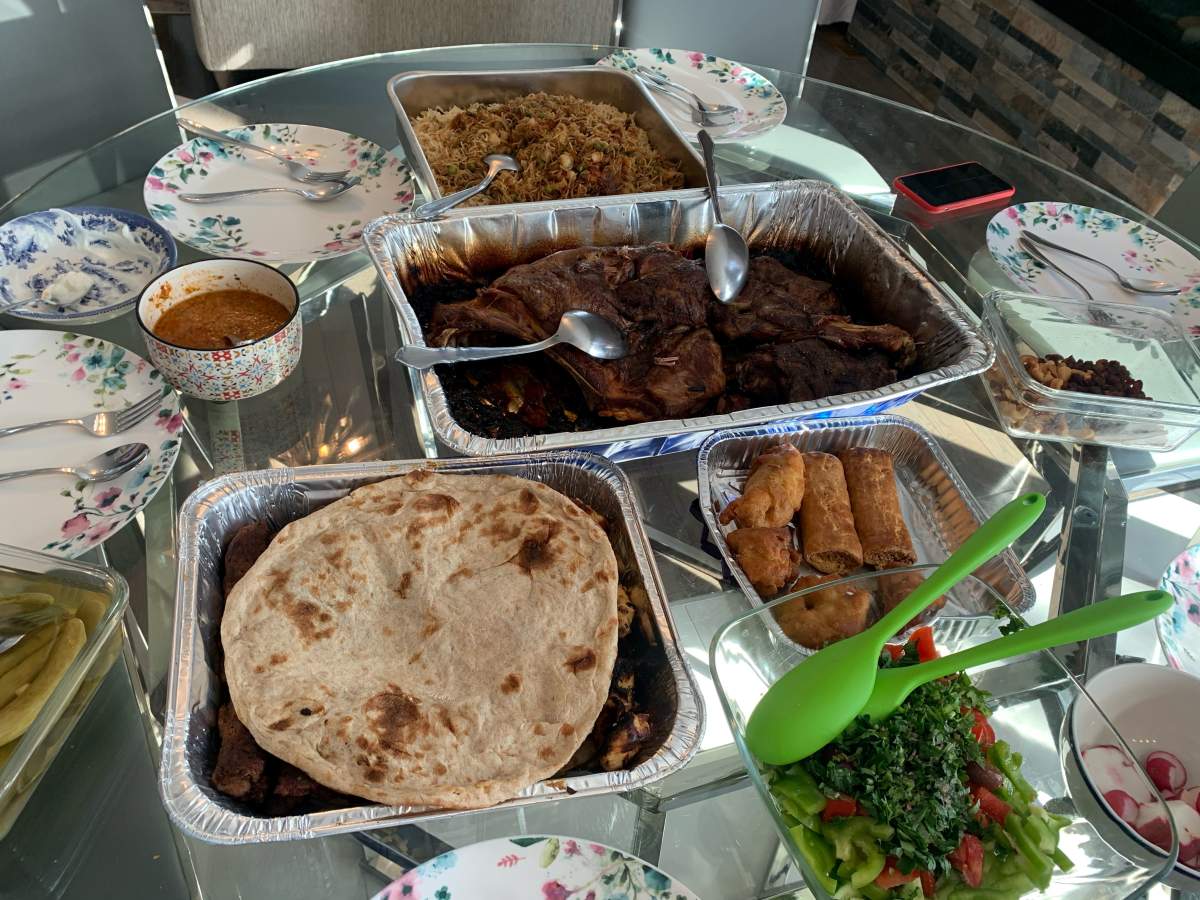Many in Nova Scotia’s Islamic community are choosing to fill their day with love and joy as they start celebrating Eid al-Fitr during a time of strict restrictions due to COVID-19.

Eid al-Fitr marks the end of Ramadan, a month of fasting and prayer. It’s a time for family visits, gift-giving, charity and special prayers.
It has also become a time where people are acknowledging the mental hardship that comes with being in lockdown.
“Having to work through COVID has caused me a lot of mental health issues to the point where I’ve recently begun trying medication to try to manage my anxiety,” said Abeeha Salamat, who started celebrating Eid on Thursday.
The religious holiday typically lasts for three days.
“I would love to be able to go to the mosque and pray with my family, meet people that I haven’t seen … because that’s usually where we run into each other and embrace them and share those happy moments,” said Salamat.
“I can’t even see my uncle and his family…. I’m missing out on these pieces, but I’m trying to make the best out of the situation.”
That’s why she has decided to put on her new outfit, a Pakistani traditional outfit known as gharara, and do a small henna design on her hand to celebrate the start of Eid and cheer herself up.
She also went on Skype to connect with her sister living in the United States and with her extended family in Pakistan.
“I’m just choosing to simply be and having pride in the fact that I do get to wear these beautiful clothes and I do get to share my happiness with my neighbours and things like that from a distance,” said Salamat.
“I mean, just having pride in where I come from, who I am and putting that on display, so to speak.”

Nova Scotia is still seeing high numbers of COVID-19 cases, but Dr. Robert Strang, Nova Scotia’s chief medical officer of health, said on Thursday that the province is seeing early signs that the case numbers are declining.

Get daily National news
“(This) is an indication that the restrictions that are in place are working,” Strang said in a press release.
Some of these restrictions have included avoiding non-essential travel outside a person’s community and a gathering limit of no more than the household bubble, be it indoors or outdoors.
With these rules in mind, a family of six in Halifax have adapted their Eid tradition to keep themselves and others safe.
Nahil Sadaqa, a father of four, was in the car with his family Thursday on his way to honk and wave at some of their extended family members from afar.
“We have a kind of a tradition we used to do before where we go to a restaurant and have lunch, now we’re also on our way for a drive-thru,” said Sadaqa.
He said it hasn’t been easy, but it’s important to create something special for the kids.
“I always believe that things are going to get better,” said Sadaqa.
It’s a belief also shared by Maher Araim, owner of 360 Lounge, a restaurant that specializes in Western and Middle Eastern food.
“We have to live with COVID until it’s all gone. We have to take all the precautions … to hopefully get through it sooner than later,” Araim said.
He said this time has been especially hard for his wife, who’s been sitting at home and taking care of the kids as he manages the restaurant.
“No one can come in the house and help you, so it’s not an easy thing,” Araim said.
Knowing how hard it has been for people, he has also given a day off for his restaurant staff on Thursday so that they can celebrate Eid.
“I know they can’t do much like the year before, but at least they can spend it with the family, celebrate it and enjoy the day.”
Araim said he’ll be celebrating Eid at home by enjoying Quzi, a national Iraqi dish, which is served with cooked lamb, roasted nuts, and raisins served over rice.
“It’s the signature of the first day of Eid for most people, especially Iraqis.”
As Nova Scotians continue to do their part to stop the spread of COVID-19, the Muslim community also decided that Eid would be a good day to do testing.
In partnership with public health, Ummah Mosque in Halifax held a COVID-19 testing site on Thursday.
The imam, Abdallah Hussein, said the neighbours of the mosque have also been invited to take part in the testing.
He said this is also a chance for people in the Muslim community to see each other, even if it’s from afar.
“We started Ramadan with the hopes that we can gather … but unfortunately, so much changed and that’s why some people are a little bit frustrated,” said Hussein.
To deal with that, he said the volunteers at the mosque have kept themselves busy by volunteering and showing support to health-care workers.

They were able to distribute 9,000 meals to various communities and volunteers at COVID-19 testing sites.
Hussein said he knows that many are struggling because of COVID-19 and that’s why the mosque is trying to offer clinical counselling as soon as they find a professional.
In the meantime, he said family and youth supports are available, as well as ongoing financial support for some families.
Salamat is encouraging anyone who’s struggling due to COVID-19 to reach out to the mosque through its Facebook page.
“They are an absolutely amazing resource for connecting people, whether through the mosque itself or not, somebody is bound to reach out and be as hospitable as they can be during the lockdown,” she said.
“It’s very easy to feel isolated and lonely in this. But again, using the resources that are available to us to the best of our abilities really does make a difference.”












Comments
Want to discuss? Please read our Commenting Policy first.